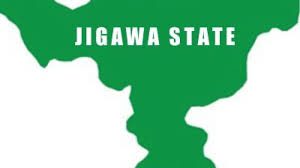
Nigeria LNG has not yet cancelled cargoes despite force majeure – Sources
Nigeria LNG Limited (NLNG) has not yet cancelled any liquefied natural gas (LNG) cargoes despite declaring force majeure due to heavy flooding, two sources familiar with the situation told Reuters.
The sources added the force majeure declaration was pre-emptive to protect the company, and put its clients on notice, if the flooding continued for much longer, and did impact loadings.
“The gas supply has not stopped yet,” one said.
Force majeure refers to unexpected external circumstances that prevent a party to a contract from meeting obligations.
Analysts Rystad Energy said the disruption – another supply shock in a tight LNG market – threatened nearly 4% of global supply just as Europe is reeling from the absence of Russian pipeline gas
Continued flows of Nigeria’s LNG is crucial for Europe; Portugal’s Galp has warned it would struggle to replace Nigerian cargoes.
Galp declined to comment on Wednesday on whether any of its cargoes were cancelled.
NLNG, with a production capacity of 22 million tonnes per annum, said flooding had caused “significant disruption” to its gas supply, but would not say whether it had cancelled cargoes.
“NLNG continues to explore mitigations with its buyers,” a spokesperson said in an email.
Nigerian authorities said states including oil and gas producing Rivers, Bayelsa and Delta were at risk of flooding until the end of November.
Flooding caused by heavy rains and a water release from a Cameroonian dam has already killed more than 600 people and destroyed roads and farmland.
Data intelligence firm ICIS estimated NLNG had been exporting around 18-20 cargoes per month, a similar volume to Freeport LNG, the second-largest U.S. exporter of LNG, which halted operations in June after an explosion and fire.
Refinitiv Eikon analyst Olumide Ajayi said one vessel, the Prism Agility, had loaded since the force majeure, and another, the LNG Adamawa, was currently loading.
Portugal, which last year got nearly half of its LNG from Nigeria, and oil major Shell, NLNG’s largest single offtaker, are at most risk from the outage, according to investment bank Jefferies.
Shell did not immediately respond to request for comment if it had received any notice of cancellation.



